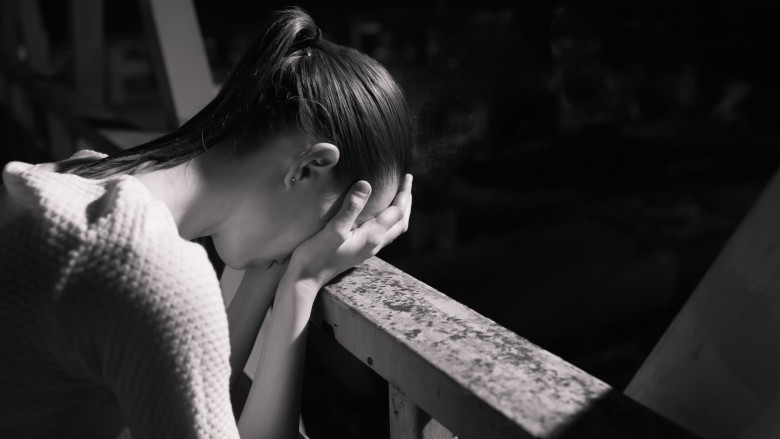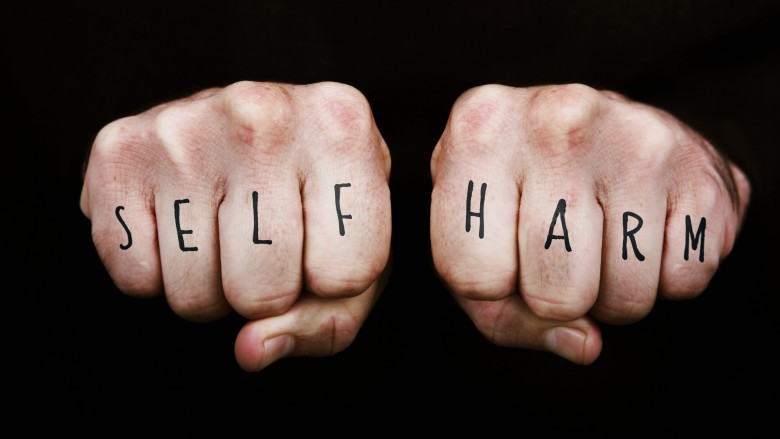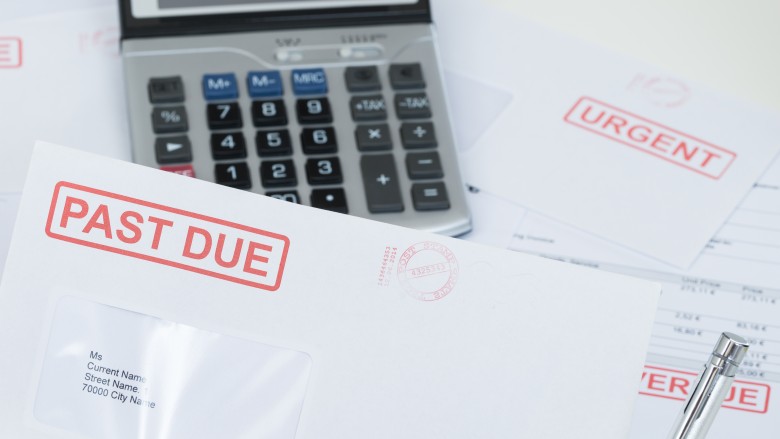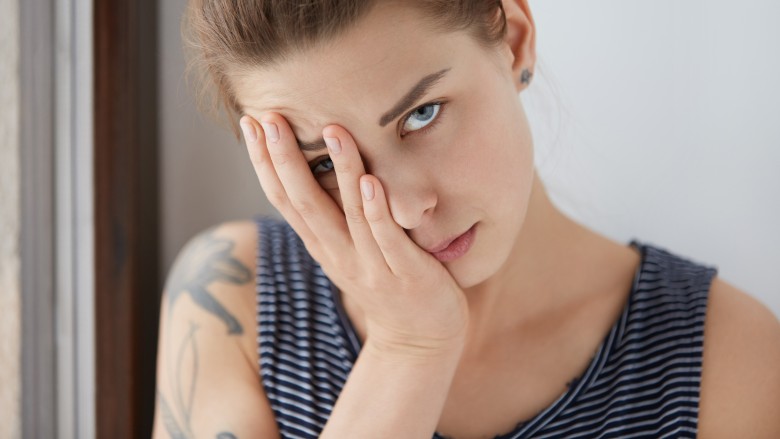Depression Symptoms You Need To Know About
Depression is nothing to take lightly, or ignore. The National Network of Depression Centers (NNDC) says that, in the U.S., depression is the number one cause of disability in the U.S. for people ages 15 to 44. And, that "many people living with mental illness are not receiving the potentially lifesaving treatment they need."
A publication by Washington University St. Louis, tells us that 17.5 million American suffer from depression, and that women are twice as likely as men to experience it. However, many people are depressed and don't even know it. I had the opportunity to talk to a number of mental health specialists to uncover common and lesser-known symptoms of depression.
Frequent crying...or not crying at all
If you find yourself crying much more than normal, for no apparent reason, it might not just be hormones. It can, in fact, be a sign of depression. An article by the American Psychological Society says that "increased crying could reflect that depressed persons are exposed to more sad stimuli in their everyday environments than are healthy individuals." Many people say they feel more prone to tears when they are depressed. Some people, on the other hand, have trouble expressing any emotion when they are suffering from depression.
In an article, Dr. Edward Shorter quotes an Elizabeth Barrett Browning poem in which she writes about grief, saying, "If it could weep, it could arise and go." He cites this poem in reference to the state of melancholia deeply depressed people experience when they can't really feel anything. And he says it's a big red flag. If you are crying more than usual with no obvious cause, such as a tragedy in your life or a hormonal fluctuation, or, if you usually cry at certain things and then find you cannot, you should talk to someone about it.
Irritability
Ali Mandelblatt, clinical and forensic psychologist, says that people, especially young people, display anger and irritability when they are depressed. Dr. Angela Reiter, PsyD, says, "An increase in irritability and arguments with others is often a sign of depression. Depression influences an individual's thoughts and can lead to focusing on the negative in situations and relationships." You might find yourself lashing out unexpectedly, or you might find yourself getting irritated and angered by situations that normally don't bother you.
Viktoria Ivanova, M.Ed., B. Sc., a registered clinical counselor and certified Canadian counsellor, says that this is a less common sign of depression, but that "irritability and anger is a way of coping, for some people, with pain." Before your irritability hurts those around you, seek help.
Loss of interest
People who are depressed might find that they're not as interested in things as they used to be. Dr. Helen Odessky, psychologist and author of Stop Anxiety From Stopping You, describes, "You just don't feel like you are enjoying things the way you used to. Even activities that used to bring you joy no longer feel enjoyable. This is a warning sign you should not ignore. If you feel disinterested and bored, please talk to someone – it may be a sign of depression."
This is actually quite a common symptom of depression. Dr. Susan Noonan, a certified peer specialist and consultant at Massachusetts General Hospital and McLean Hospital (the largest psychiatric affiliate of Harvard Medical School), told us about the DSM 5, which is a set of diagnostic guidelines that the American Psychiatric Association developed to diagnose depression. There are nine symptoms, and if a person has five of them for two weeks or longer, they are diagnosed as depressed. She says, "At least one of the five must include persistent sadness or loss of interest or pleasure." If you find yourself not enjoying the things you normally would, it's a sign that you're depressed.
Sleep disturbance
Depression can have an impact on your sleep. Dr. Noonan says that both difficulty sleeping or sleeping too much are signs of depression, as is interrupted sleep or waking up long before your alarm. Asta Klimaite, licensed clinical counselor, says, "People who struggle with depression also report increased nightmares. They report that they do not feel rested when they wake up. In addition, people often times experience difficulty staying asleep." She also mentioned that women who experience postpartum depression have difficulty falling asleep because they have anxiety that something bad will happen to them, or their children.
Dr. Prashant Gajwani, MD, says that the sleep-wake cycle becomes disturbed in people who suffer from depression and that the irregularity can actually exacerbate depression. If you're sleeping too much or not enough, depression might be the culprit. It's good to try to limit yourself to eight hours per night, as well as doing things to encourage sleeping eight hours if you're experiencing insomnia.
Suicidal thoughts
Nancy Virden, mental health advocate and a suicide-attempt survivor, shared her story with me. She said, "In January 2011, I tried to end my life. One might think I would have known how to manage my major depression since it is recurrent, however many signs went past my observation." She details her dark journey by identifying the multiple stressors that started a year earlier: a move, surgery, major life events. She went off her meds eight months before her attempt, and a few weeks before her attempt, she was reckless and suffering major mental torment. Virden has gone on to help many others identify the signs of depression and live to fight another day.
Dr. Darius Russin says, "Suicidal thoughts are always a warning. Please seek help if you have any. Do not think you are alone. You matter. Leaving us would rid the world of what you could do to change it. Please find a medical professional." But suicidal thoughts are not the only dangerous sign of depression. Dr. Reiter says that passive thoughts about death can also be a big, dangerous warning sign. If you're thinking, "I wish I could go to sleep and never wake up," it's a serious sign that you shouldn't ignore.
Self-harm
Dr. Ramani Durvasula, licensed clinical psychologist and professor of psychology, says that we need to pay the most attention to the markers of suicidal thoughts, which include hopelessness and self harm. Deborah Serani, Psy.D., says that self-harm is a "deliberate, non-suicidal behavior that inflicts harm on one's body to relieve emotional distress." This can take the form of cutting, scratching, hitting yourself, burning, picking, or a number of other actions.
Author of the Bipolar Burble blog, Natasha Tracy, wrote an article for Healthy Place about self-harm, saying that many different psychological disorders are related to self-injury. People with depression may hurt themselves, but so might people with bipolar disorder, eating disorders, or people with OCD. It is a symptom associated with lots of different disorders, but people who do it often, say that it makes them feel better.
Carrie Arnold examined self-harm from a personal perspective, sharing a bit of history as well. She says that this type of behavior isn't new, that Herodotus wrote about King Cleomenes of Sparta's propensity for cutting, and that clinical reports on self-injury happened as early as the 1800s. Arnold says that from her perspective, "I didn't enjoy the pain of cutting, but, as the physical pain began to fade, it took some of my emotional distress with it." If this is something that sounds familiar to you, it's time to take action.
Social withdrawal
In her story, Nancy Virden said that three months before her suicide attempt, she had a growing sense of worthlessness and hopelessness that made social interaction difficult. Often, when people are depressed, they will avoid social contact.
Viktoria Ivanova says, "Feeling overwhelmed and fatigued, people often start withdrawing from others and canceling social activities they used to enjoy." Likewise, Dr. Shanthi Mogali, director of psychiatry at Mountainside Treatment Center, says that if you're a social person who enjoys going to parties and networking events, and suddenly the prospect of those activities feels dull and disappointing, it's a sign that something isn't right.
Neglect of responsibilities
Dr. Fran Walfish, Beverly Hills family and relationship psychotherapist, author of The Self-Aware Parent, and former expert co-star of WEtv's Sex Box, says, "A depressed person might tend to hide from bills because he or she has no available energy to deal with life and daily responsibilities. Avoidance becomes a maladaptive coping mechanism." A person who might seem lazy might actually be depressed.
Similarly, if you find yourself unable to deal with life's day-to-day activities like paying bills, doing the laundry, taking care of your kids or even keeping up with your personal hygiene, it's a sign that you're depressed and you need to allow yourself to seek help.
Decreased sex drive
Most experts say that a decreased interest in sex, or the inability to become aroused, stay aroused or reach orgasm, are signs of depression. Of course, this can be a symptom of an underlying illness, as well, so if your libido drops noticeably, you're going to want to get it checked out.
The NIMH says, "Biological, lifecycle, and hormonal factors that are unique to women may be linked to their higher depression rate." Perhaps those hormones could cause the sex drive issues many depressed women face. However, men who are depressed can also experience a dip in their sex drive. Not only can depression itself result in a lack of interest in sex, many medications used to treat the illness also have sexual side effects. Not all doctors will ask about your sex drive, so don't be afraid to broach the subject.
Sudden unexplained pain or sickness
If you have mysterious pains and aches, or feel sick all the time, it could be depression. Of course, you should get any sickness or pain symptoms checked out by a doctor, but if there are no medical explanations for your aches, it might be time to see a therapist.
Anjhula Mya Singh Bais, an expert with a PhD in international psychology, says, "Our body has to manifest its distress in some way. Often this is psychosomatically. Do not ignore aches and pains as just that because mind and body are intimately connected and speak to each other all the time. It could signal an underlying depression and those pains are your body's way of speaking to you and calling your attention. This includes shoulder, lower back, neck pain, a low fever, headaches and gastrointestinal issues." If you have non-medical pain or sickness, please reach out to a professional for help.
Excessive drinking or drug use
Alcoholism and addiction are diseases all on their own. But if someone doesn't usually suffer from them, and finds themselves drinking excessively or using illicit drugs, it could be a sign of depression. Viktoria Ivanova says, "An onset of depression can also be marked by a beginning or intensification of an addiction like smoking, drinking, drug use, porn use, computer games, gambling and more."
Dr. Mogali agrees, saying, "Drinking yourself into a stupor to deal with your feelings (and being unable to stop) is another signifier for a lot of people." Life is very hard, and it can seem like a welcome release or an escape, drinking or getting high to dull the pain. But it will likely intensify depressive feelings and lead to an even deeper depression. Rather than turning to the bottle or something worse, seek a professional who can help you.
Feeling "off"
Sometimes depression manifests in ways that we can't quite explain. Dr. Singh Bais says, "People have an innate wisdom themselves that remains untapped. I ask clients if they are feeling like themselves lately. That simple question is quite illuminating." You may be feeling just a little off, or you may have one of the many symptoms of depression that are more obvious.
No matter what, your mental health is just as important as your physical health. You'd go to the doctor if you had chest pains. So, if your feelings are "feeling ill", rest assured, there is help out there just waiting for you to ask for it.













